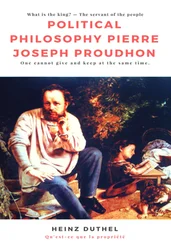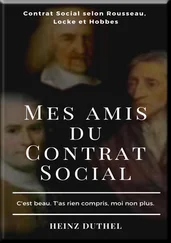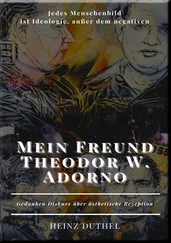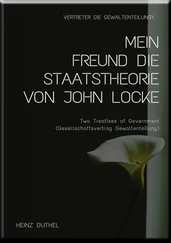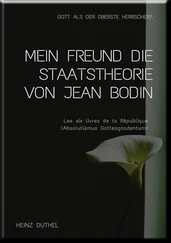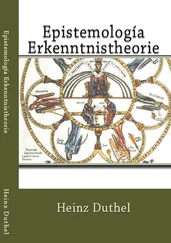[Lundgren, 1979 #477, p 42]
Neither the life of an individual, nor the history of a society can be understood without understanding both.
[Mills, 1970 #562, p 3]
1.2.1 The mathematics education context
“Mathematics is often about nothing at all” was how one correspondent to the Cockcroft Report, Mathematics Counts, published in 1982, summarised what must be many children’s experience of the subject. Mathematics is about collecting like terms, removing brackets and all manner of things that seem quite divorced from our everyday lives, interests or needs. Yet, it is a naïve description because it merely takes some of the surface features and ignores the complexity and underlying structure. Paradoxically, it is exactly because someone can say this that makes the situation more worrying - showing how alternative descriptions can be lost and how complete the hegemonic control can be over the nature of educational experiences.
One response to the criticism that mathematics is ‘about nothing at all’, is to tinker with the curriculum, to trying to make mathematics ‘more relevant’ using ‘real life’ or ‘real world’ examples. Yet, as I will go on to argue, and as Paul Dowling has demonstrated [Dowling, 1998 #391], this does little to change the situation since many of the contexts are unreal and mythological.
The three epigraphs that open this section are intended to give a feel for my position in this Study. It is my desire to liberate and empower; to liberate by exploring the ordinary, the everyday common normal practices. By problematising these everyday practices, such interactions and relations as may appear normal, insignificant or even essential in mathematics classrooms are raised as problematic.
Recently there have been attempts to describe, understand and theorise the contribution (or constraints) made to learning through the social and cultural context in which teaching and learning takes place and there is a fast growing literature base. While this development does signify a move away from an embeddedness in psychology, it does not necessarily represent a significant change in orientation. Rather what appears to be underway is the development of a cultural psychology, concerned with changes within psychology to incorporate social influences and contexts [Lerman, 1998 #726, pps 333 – 334]. As Stephen Lerman points out “fully sociological approaches to mathematics education have not been prevalent” [Lerman, 1998 #726, p 333]. It is just such a sociological approach that I am attempting to develop and so my theoretical and conceptual underpinnings come from social theory rather than psychology. Consequently, I draw on such scholars as Michel Foucault, Pierre Bourdieu, Karl Marx and other social theorists, rather than Piaget, von Glasersfeld, Vygotsky etc. (although their contribution to our understanding of social processes is important, acknowledged and in places incorporated). My main task is a sociological one. Put simply, this Study is an attempt to better understand the ways in which the teaching and learning of mathematics contributes to uneven social and educational outcomes and opportunity.
My approach to this is to look into the ways in which teachers conceive of their work as teachers of mathematics, and more specifically how this is organised by and related to their social imagery. By ‘social imagery’, I refer here to conceptions about social relationships, the patterns of relationships between different groups they envisage, the relational values that teachers hold and which allow them to operate as agents in the social field of mathematics teaching. This might seem an ambitious task, so in this section I will try to justify my decision to undertake it.
1.2.2 The social context
It can hardly be contested that we live in an uneven and unjust society where access to education and to justice depend on the capital one can appropriate and accumulate. There is ample evidence in the literature to support this contention such that it is hardly now contentious [See as a selection for example \Aggleton, 1988 #612; Anyon, 1983 #613; Anyon, 1981 #221; Anyon, 1981 #168; Anyon, 1980 #514; Bernstein, 1975 #201; Bernstein, 1975 #262; Craft, 1970 #631; Dubberley, 1988 #601; Jackson, 1962 #404; Robinson, 1976 #629; Tyler, 1977 #630; Willis, 1977 #22]. But unfairness, injustice and prejudice are not abstract concepts of macro-social analysis of an internecine class struggle. They are felt through the disappointment, hopelessness and frustrations of ordinary people as they get though their everyday lives. They exist in the knots in the pit of the stomach and the tears in the eyes. Injustice is a process that goes on all around us, even when - and arguably especially when - we do not look for it or recognise it. It has now been found that pupils from working class backgrounds do less well at school than those with middle class backgrounds [Croll, 1981 #575, 110]. Whilst this may partly be attributable to a paucity of material conditions in the home, it cannot totally be attributed to this because the trend is that even children from more affluent semi-skilled working class homes do less well than middle class children [Croll, 1981 #575, p 111]. At least in part then, the cause must lie elsewhere and may include attitudinal factors, differential resources available for educating children from different social backgrounds, and in addition teachers’ behaviours and the very nature of education favouring the thinking and disposition of some children rather than others. I will look further into this issue in later chapters, but it is a concern in this Study to look at the contribution to this inequity that might be played out in mathematics pedagogy. It is my contention that Mathematics plays a significant role in organising the segregation of our society.
Mathematics is not used as a selection device simple because it is useful, but rather the reverse.
[Willis, 1989 #768, p 35]
Mathematics education plays its part in keeping the powerless in their place and the strong in positions of power. It doesn’t only do this through the cultural capital a qualification in mathematics endows on an individual. It does this through the authoritarian and divisive character of mathematics teaching. Either one can do maths or one can’t, but an accusation or admission that you can’t is more than just plain fact of capability; it is a positioning strategy – something that locates one in particular relations with others. It locates you as unsuccessful, and lacking in intellectual capability; it locates you on the edge of the employment and labour market, as virtually unemployable. Mathematics education thus serves as a “badge of eligibility for the privileges of society” [Atweh, 1998 #767, p 63].
For all of my working life – now 25 years – I have been in mathematics education and have worked in largely working class areas of East London, Beira in Mo*ambique and Milton Keynes. I have therefore seen and been part of the very battles between pupils and a curriculum in which they could see little relevance. I have experienced the tensions and contradictions in being cast in the role of the enforcer and having to find my way through that and round that.
1.2.3 The research context
It was a natural progression for me to use the opportunity of doing a Master in Philosophy. to try to explore some of the roots of social discrimination. There is considerable research evidence, publications and doctoral theses demonstrating that mathematics education is unfair, unjust and that certain sectors of society are inequitably treated. Here I want to develop this work, but to do something further. I want to stand on the shoulders of those that have gone before me and to study the mechanisms and present a framework for explaining how and why some of the precursors to this injustice occur. Hence, in this Study there is a considerable section where I undertake a development of a theoretical framework. I found I could not separate easily the theoretical framework from the literature review. What I have tried to accomplish is to present three cognate areas – theories of social structure and organisation (Chapter 2) theories of the conceptualisation of human agency (Chapter 3) and theories of the social foundations of mathematics education (Chapter 4).
Читать дальше




